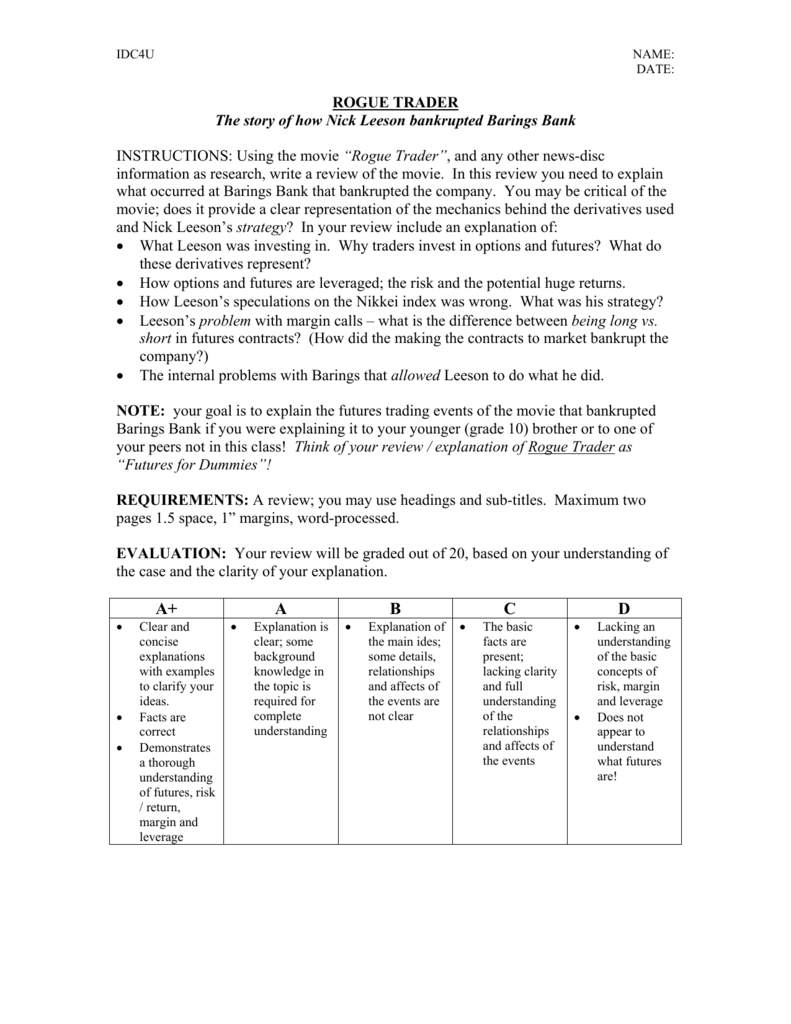
Can you see how you might hide that loss and/or trade your way out of it (usually to very negative effect)? Imagine how you would feel being in a position of having made a big bad trade, the result of which would cause a reduction in your social standing. If your trading has an ego and reputational element to it – meaning you gain personal and/or social status enhancement from your trading performance – then you are at risk of become a rogue trader in your own way. That doesn’t mean, though, that these points don’t have value at the individual level.Ĭonsider just one aspect of the rogue trader thing noted above, the part about reputation.

Now, most readers of this blog probably won’t be in a position to become a rogue trader in the classic sense. A recent discussion of rogue traders looks to address the reasons why they do what they do.ġ) The qualities which make them attractive as employees (can thrive in highly competitive environments, remain calm under intense pressure and have the ability to take risks ) are the same that lead to rogue trading.Ģ) They are motivated by money and that motivation turns to greed, leading them to take greater risks.ģ) The traders’ managers benefit from their risky trades in that their bonuses and such are often a function of the groups’ performance.Ĥ) The trader tries to cover up a mistake to protect both their compensation and their reputation.


 0 kommentar(er)
0 kommentar(er)
